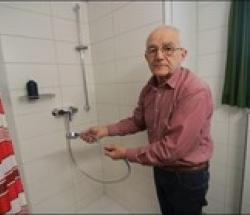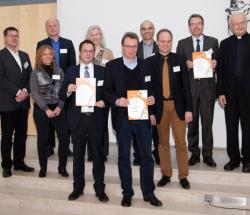| Brief description | Training volunteers and long-term unemployed to become energy savers and offer advice on resources’ saving to low income households in the border areas of Upper Swabia, Voralberg and St Gallen-Appenzell. |
|---|---|
| Region | Internal EU borders |
| Countries | Austria (AT) – Germany (DE) – Switzerland (CH) |
| Location | AT: Voralberg
DE: Upper Swabia CH: St Gallen- Appenzell |
| Type of project partners | Non-governmental organisations (international/national NGOs) |
| Size (total budget including EU grants) | Over € 500,000 |
| Main themes | Employment, labour mobility and social inclusion |
| Keywords (Types of Activities) | Education and training Other |
| Keywords (Aspects of Good Practice) | Genuine cross-border dimension Genuine cross-border impact Efficient Good sustainability |




